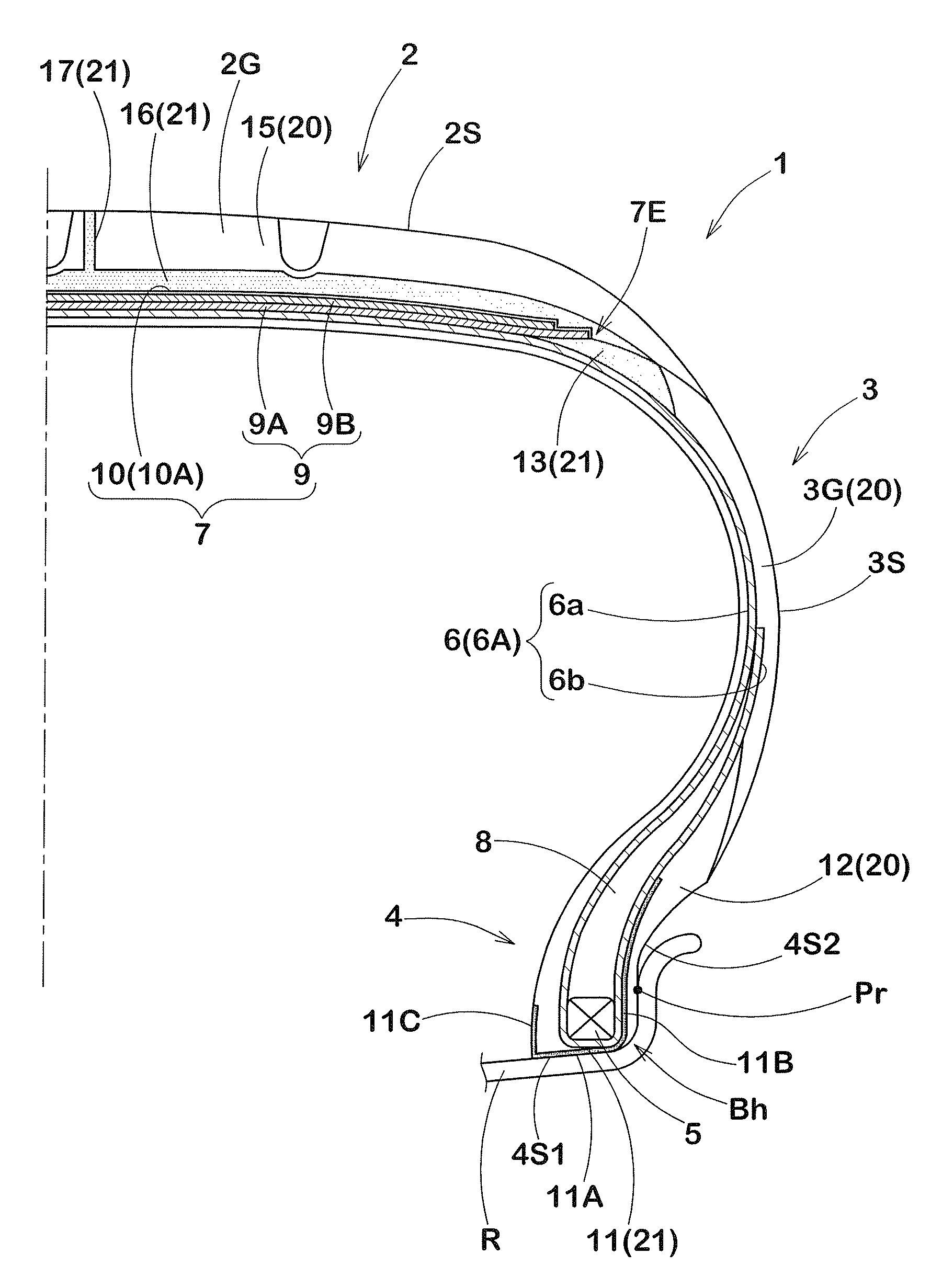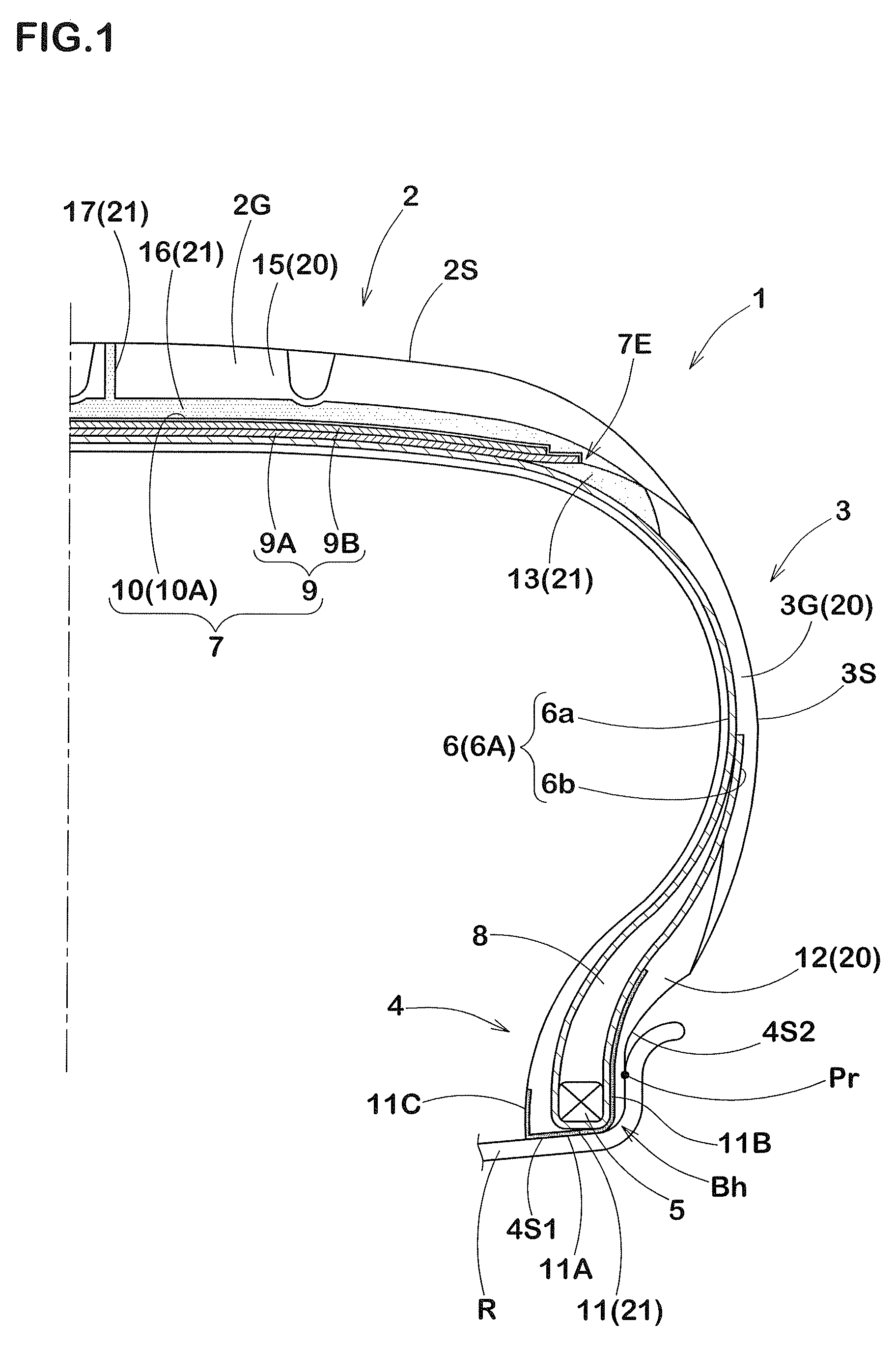Pneumatic tire with electrically conductive rubber material
a technology of electrical conductivity and pneumatic tires, applied in the field of pneumatic tires, can solve the problems of reducing affecting the safety of passengers, so as to achieve low rolling resistance and reduce the electric resistance of tires. the effect of high resistan
- Summary
- Abstract
- Description
- Claims
- Application Information
AI Technical Summary
Benefits of technology
Problems solved by technology
Method used
Image
Examples
examples
[0055]Pneumatic tires (size: 225 / 55R16) having a base structure shown in FIG. 1 were manufactured based on the specifications shown in Table 1, and the rolling resistance and electric resistance of the tires were measured. The results are shown in Table 1. Specifications other than those described in Table 1 are common to all tires. Compositions of rubber members used in Table 1 are described in Table 2. In Comparative Examples 2 and 3, a radially outer end portion of a sidewall rubber is interposed between the tread-reinforcing rubber and the carcass, instead of a cushion rubber, as shown in FIG. 6(A).
[0056]The rolling resistance was measured under the following conditions by using a rolling resistance tester. The results are shown by an index of the reciprocal of the measured value based on a result of Example 1 regarded as 100. The larger the value, the smaller the rolling resistance and the better the rolling performance.[0057]Rim: 16×7JJ[0058]Inner pressure: 200 kPa[0059]Load: ...
PUM
 Login to View More
Login to View More Abstract
Description
Claims
Application Information
 Login to View More
Login to View More - R&D
- Intellectual Property
- Life Sciences
- Materials
- Tech Scout
- Unparalleled Data Quality
- Higher Quality Content
- 60% Fewer Hallucinations
Browse by: Latest US Patents, China's latest patents, Technical Efficacy Thesaurus, Application Domain, Technology Topic, Popular Technical Reports.
© 2025 PatSnap. All rights reserved.Legal|Privacy policy|Modern Slavery Act Transparency Statement|Sitemap|About US| Contact US: help@patsnap.com



